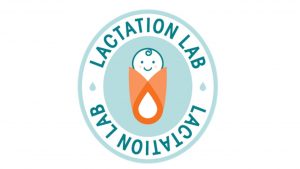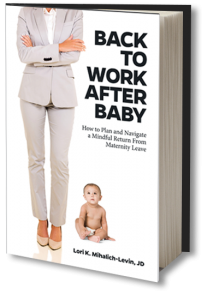 What’s in your breastmilk? Today on the Mindful Return blog, we’re thrilled to be joined by Dr. Stephanie Canale – physician and founder of a company called Lactation Lab that can test your breastmilk for nutritional sufficiency. Dr. Canale’s own struggle with discovering she had had enough breastmilk but still had a baby who wasn’t gaining weight properly led her to wonder what exactly was in her milk. And what she could do to help her baby.
What’s in your breastmilk? Today on the Mindful Return blog, we’re thrilled to be joined by Dr. Stephanie Canale – physician and founder of a company called Lactation Lab that can test your breastmilk for nutritional sufficiency. Dr. Canale’s own struggle with discovering she had had enough breastmilk but still had a baby who wasn’t gaining weight properly led her to wonder what exactly was in her milk. And what she could do to help her baby.
Gosh, I wish a breastmilk testing service were available to me when I was pumping and scalding off the excess lipase in my milk so it wouldn’t turn sour, all the while wondering if it was still okay for my baby…
Dr. Canale has joined us today to help us understand: (1) what vitamins are in breastmilk – and how we can get them there; and (2) what’s up with breastfeeding and COVID-19. (Please also join us for a joint webinar on May 14, 2020, from 1-2pm Eastern, to talk about breastmilk and things we actually have some control over in new parenthood. Register here.) 
Here’s today’s lesson from Dr. Canale:
**************************************
Being a new mom can feel very isolating and scary — feelings that the COVID-19 pandemic may have intensified. Many new mothers have also been advised NOT to go to the doctor’s office for routine check-ups or wellness visits. This can cause additional fear, uncertainty, doubt and the general sense that things are beyond our control.
During these times, it can be reassuring to know that we do still have control of important elements of our lives, like how we are nourishing ourselves and our babies. Lactation Lab’s mission is to give mothers the tools to gain insight into their diet. With this knowledge, parents can optimize the nutrition of their babies and reduce illness. 
We provide “a food label for breastmilk” by measuring calories, fat, carbohydrates, protein, iron, Vitamins A, C and B12.
Research shows that women who learn about how their diet affect the nutritional quality of their milk supply are able to breastfeed longer. We invite moms to gain control of their quality of their milk and improve the health of their breastfed children by visiting us at www.lactationlab.com.
Why Focus on Postpartum Nutrition?
Postpartum nutrition is an area that has received little attention in the past. Many mothers are focusing on the physical recovery from childbirth. And the emotional challenges come quickly and sporadically soon after becoming a mother.
Many new mothers try to care for themselves as best they know how. But often the best they can do is to simply take their prenatal vitamin when they can remember. Childbirth and breastfeeding can be stressful, and our bodies need proper nutrition now more than ever to survive the demanding sleep-deprived days ahead.
I have yet to meet a breastfeeding woman who is not exhausted, struggling with hormonal changes, and forgetting to take vitamins and eat properly!
What Vitamins Do We Need, Exactly, for Healthy Breastmilk?
To provide our babies with the nutrients they need to thrive, we as mothers need to pay attention to the following five things:
- Iron: Iron is essential for red blood cell function, immune support, and neurodevelopment in the child. Many women may not realize that they are anemic (i.e. lack of iron). And studies have found that many women can have normal blood counts but their iron stores can be low.
Many women continue to take a daily prenatal vitamin, which can have about 10-18 mg of iron. The issue is that we do not absorb all of the iron we intake. Taking iron together with Vitamin C will help with absorption.
We recommend that women take a vitamin that contains 18 mg of iron daily in addition to eating 1-2 servings a day of dark green veggies. Replenishing iron levels will help with postpartum fatigue, help replete iron stores, and correlate with levels in breast milk. A mother who is iron deficient may feel tired, have more hair loss, and less overall energy. Some studies have also shown impaired cognition and memory.
- Vitamin C: The role of vitamin C is complex. It is important to regulate fatty acids, needed to absorb sufficient amounts of iron and other necessary minerals such as zinc, and plays an important role as an antioxidant and to decrease inflammation.
The levels of Vitamin C a mom consumes will correlate directly with breast milk concentrations. A breastfeeding mother should consume a minimum of 120 mg daily. We recommend 500 mg daily for nursing mothers as an optimal dose. Foods that are rich in Vitamin C include citrus fruits, strawberries, cabbage, and spinach to name a few.
- Vitamin B12: Many women have low levels of B12 for various reasons. Some are vegan or vegetarian, or those who do eat meat do not consume enough. We do not absorb all of the B12 we intake. Vitamin B12 is important for neurodevelopment and proper nervous system function. There have also been many reported cases of low B12 contributing to anxiety and nervousness. Having adequate levels of B12 are necessary for proper cell function, can help combat fatigue and are necessary for proper hair growth.
- Vitamin A: Vitamin A is not only important for eye development but plays an important role in immunity and helping us fight infections. It’s an important antioxidant, too. A mother who has had a history of gut issues that may affect absorption may herself be deficient, and this may lead to lower levels in breast milk. For example, a mother with a history of Crohn’s disease who has had gastric bypass surgery, or who has short bowel syndrome may not absorb enough Vitamin A.
The typical pre- or post-natal vitamins contain anywhere from 50-1000 IU (international units) of Vitamin A daily. Mothers who eat little dairy are also at risk for having lower levels of Vitamin A. The RDA of Vitamin A for a breastfeeding mother is 2300 IU daily, and we recommend in addition to taking a prenatal vitamin eating foods that are rich in Vitamin A such as oranges, sweet potatoes, cantaloupe, spinach and kale – to name a few.
- Protein: Proteins are important for immune and neurological function. They are the building blocks for tissues, muscle and bones, too. It is important that when we’re talking about a mother’s recommended protein intake, we take into account a breastfeeding mother’s need for protein to recover from the physiological strain of pregnancy and childbirth. The Lactation Nutritionist publishes an online tool that includes breastfeeding in calculating recommended daily nutritional intake.
The World Health Organization recommends roughly 17 grams of extra protein per day during the first six months of breastfeeding. Mothers should aim for a diet that includes a variety of protein sources, such as lean meats, seafood, eggs, yogurt, tofu, quinoa, nuts, beans, and plenty of vegetables.
The Bottom Line for Breastfeeding Mothers
Here’s the short story of what breastfeeding mothers need in their daily diets:
- 18 mg of iron daily with 1-2 servings of dark green veggies daily.
- Vitamin A: we recommend 2000 IU daily with 2-3 servings of foods rich in Vitamin A (e.g., sweet potatoes, carrots, cantaloupe, kale, spinach, red peppers, broccoli, and grapefruit).
- Vitamin C: 500 mg daily
- Vitamin B12: 1000 mcg daily.
- Protein: Add 17-20 gm per day,
Top Ways to Support Breastfeeding Women During COVID-19
Often, loved ones mean well but don’t know how to help with breastfeeding. Here’s a list you can send them, mamas:
- Ask and Act! Many new moms say they are okay when in fact they are not. Do more than just ask. Actions speak louder than words. It may be a simple text: I am thinking of you. I’m here if you need me.
- If you are with a mom in person, it may be as simple as getting her a glass of water or asking if she would like something to eat. Offer simple things like volunteering to clean clean pumping supplies, or making sure that feminine care/ postpartum products are replenished and easily accessible.
- Be sure her phone is cleaned and charged, and that snacks are available when nursing.
- Acknowledge how hard this is. Verbalize that for many breastfeeding is tough and for some even tougher than giving birth!
- Find resources. Offer to look up free online support groups. Check in with your local hospital – many are offering free telemedicine consults. Hospitals will also have a list of lactation consultants they recommend. We also recommend calling your insurance provider as many insurance companies are paying for Lactation Services. The CDC and WHO also have great resources here and here.
- Connect her to loved ones. Start group texts and FaceTime calls with friends and family.
- Reach out to Lactation Lab for support. Join the Lactation Lab Facebook Group here.
Questions about Breastmilk and COVID-19
Q: If I have COVID-19 and am breastfeeding, can I transmit the virus to my child?
A: In limited studies as of April 20, 2020, COVID-19 has not been detected in breastmilk. However, a newborn is susceptible to person-to-person infection. So, if you are sick and choose to direct breastfeed, be sure to wear a facemask and wash your hands before each feeding. If you choose to pump, use only your own dedicated equipment, and wash your hands before touching any parts. Clean all parts that come into contact with your milk. If you have a spouse or partner who is not infected, consider having them bottle feed the expressed milk to your infant.
Q: Should I continue breastfeeding if I have COVID-19?
A: This is a personal choice each mother needs to make, but there is a strong case for continuing to breastfeed. Breastmilk contains many immune fighting cells and can help protect an infant against infection. We know from decades of research that breastfed babies are less likely to become ill with respiratory, gastrointestinal, and diarrheal illnesses. Also, we know that for some breastfeeding and skin to skin bonding can help alleviate maternal and infant stress and anxiety.
We recommend giving baby freshly expressed milk as much as possible during times of a mother’s illness. There have been some studies that have shown a decreased immune activity of frozen versus freshly expressed breastmilk. We do not recommend scalding milk.
As of April 20, 2020, the presence of COVID-19 has NOT been detected in human milk, but Lactation Lab recommends that moms continue to monitor the CDC and WHO’s guidance on breastfeeding.
 Dr. Stephanie Canale, founder of Lactation Lab, is from Montreal, Canada, and she earned her undergraduate and medical degrees from McGill University. She completed her residency training in Family Medicine at UCLA. After medical residency, she joined the teaching faculty at the UCLA Family Health Center, before joining the Santa Monica Parkside office. She enjoys seeing patients of all ages, especially families with young babies and young adults. Dr. Canale is a Member of the American Board of Family Medicine. Lactation Lab was born out of a personal need to understand what was in her breast milk she in turn wanted to help mother’s optimize their milk and baby’s nutrition. She is married with two young children and despite loving the weather in Southern California still enjoys winter sports such as skiing and playing ice hockey.
Dr. Stephanie Canale, founder of Lactation Lab, is from Montreal, Canada, and she earned her undergraduate and medical degrees from McGill University. She completed her residency training in Family Medicine at UCLA. After medical residency, she joined the teaching faculty at the UCLA Family Health Center, before joining the Santa Monica Parkside office. She enjoys seeing patients of all ages, especially families with young babies and young adults. Dr. Canale is a Member of the American Board of Family Medicine. Lactation Lab was born out of a personal need to understand what was in her breast milk she in turn wanted to help mother’s optimize their milk and baby’s nutrition. She is married with two young children and despite loving the weather in Southern California still enjoys winter sports such as skiing and playing ice hockey.
Want more practical tips on working parenthood? Check out my book, Back to Work After Baby: How to Plan and Navigate a Mindful Return from Maternity Leave


